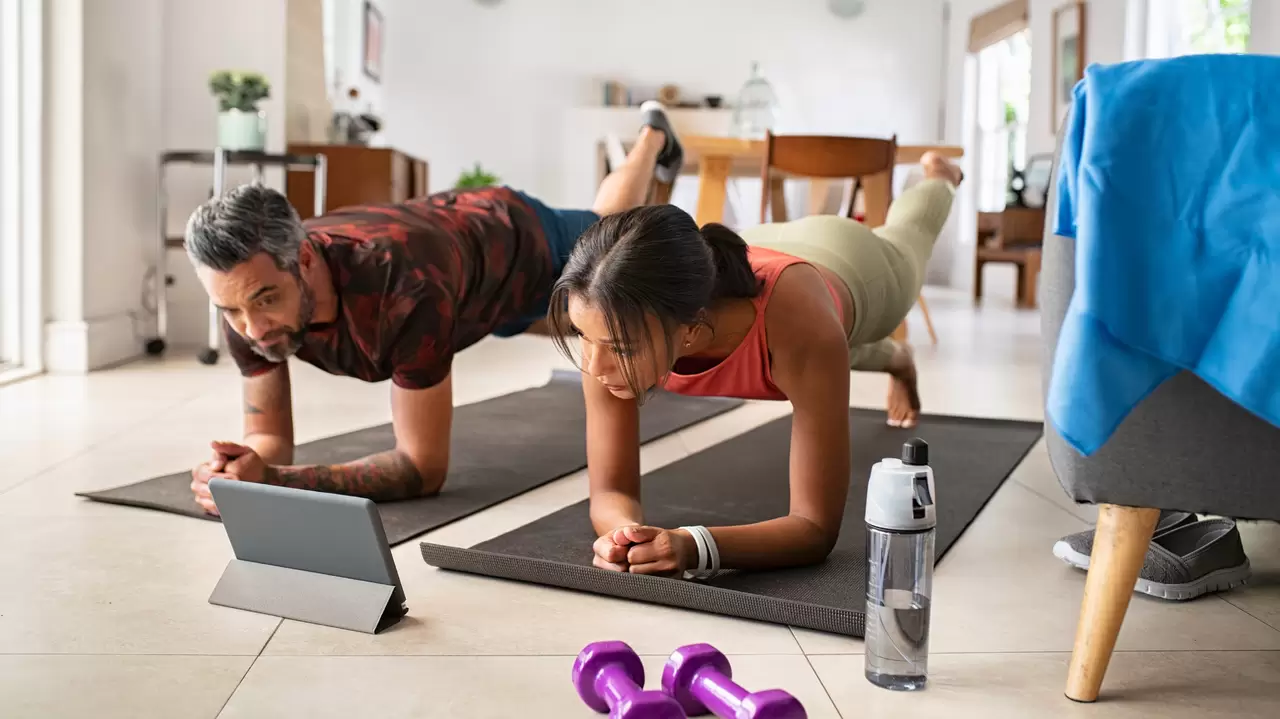
Strengthening your core may be the key to preventing back pain. Here’s how to do it.
Back pain affects almost every adult person at some point in their lives. You’re more likely to experience back pain as you age and lose flexibility. You’re also more at risk of developing pain in your back if you are overweight or are not very active. But even if back pain is something you can’t completely avoid, one of the best ways to alleviate it is under your control.
Strengthening your core muscles is a great defense against back pain. Your core muscles include a series of muscles that wrap around your abdomen and support your spine. You may think that you only need to strengthen these muscles if you want six-pack abs, but there’s a lot more to core muscles than just making you look ripped.
How do you strengthen your core muscles?
You don’t need fancy equipment or a gym membership to strengthen your core. Many core-strengthening exercises can be done with nothing but your body weight. Some popular core exercises include planks, sit-ups, crunches and bridges. If you do these exercises two to three times a week, you’ll be on your way to developing a stronger core.
When you perform any type of exercise while keeping your core stable and engaged you’re also strengthening these muscles. So whether you’re lifting weights or running, you are also strengthening your core. In fact, since your core muscles are needed for almost any type of movement you make, virtually every exercise can be considered a core exercise if done right.
Why do core muscles help with back pain?
Your core muscles are located deep within your abdomen and back, attaching to the spine, hips and pelvis. When you perform almost any type of movement, it is powered by these muscles. Whether you are sitting, standing, bending, reaching, walking or jumping, your core muscles are used to make the movement happen. Strengthening these muscles makes it less likely that you’ll experience pain in your lower back because stronger core muscles make movements smoother and more effective. They also reduce the chance of injury.
What other benefits do strong core muscles offer?
In addition to reducing back pain, stronger core muscles improve your stability and balance. This is needed if you play sports, but it is equally important for everyday life because it makes it less likely you’ll fall. A stronger core also makes it easier for you to perform all types of activities, from bending down to tie your shoes to reaching up to grab something off a high shelf. Additionally, a strong core helps improve your posture.
Not only do stronger core muscles help reduce back pain, but they may also alleviate pain in other areas of your body, including the neck, hips and knees. A strong core may even help prevent issues like incontinence since it affects movement within your pelvis.
“Back pain, poor posture, falls… These are familiar issues that only get worse as we age. Making a habit to do core muscle exercises at home can help prevent these common problems. Online resources are easy to follow. Going to a physical therapist to learn the proper way to do them is useful for people who have arthritis problems”.
Copyright 2023 © Baldwin Publishing, Inc. Health eCooks® is a registered trademark of Baldwin Publishing, Inc. Cook eKitchen™ is a designated trademark of Baldwin Publishing, Inc. Any duplication or distribution of the information contained herein without the express approval of Baldwin Publishing, Inc. is strictly prohibited.
Date Last Reviewed: November 16, 2023
Editorial Review: Andrea Cohen, Editorial Director, Baldwin Publishing, Inc. Contact Editor
Medical Review: Andrew Overman, DPT, MS, COMT, CSCS
Learn more about Baldwin Publishing Inc. editorial policy, privacy policy, ADA compliance and sponsorship policy.
No information provided by Baldwin Publishing, Inc. in any article is a substitute for medical advice or treatment for any medical condition. Baldwin Publishing, Inc. strongly suggests that you use this information in consultation with your doctor or other health professional. Use or viewing of any Baldwin Publishing, Inc. article signifies your understanding and agreement to the disclaimer and acceptance of these terms of use.